Hakon the Good is a significant figure in Norwegian history, known for his role as Norway’s first Christian king and his reforms that helped shape the country’s future.
Born in 920 CE, Hakon was the youngest son of King Harald Fairhair, who had recently proclaimed himself as the King of Norway.
Hakon’s upbringing at the English court inspired him to make Norway more like his mentor’s realm, a well-organized Christian kingdom.
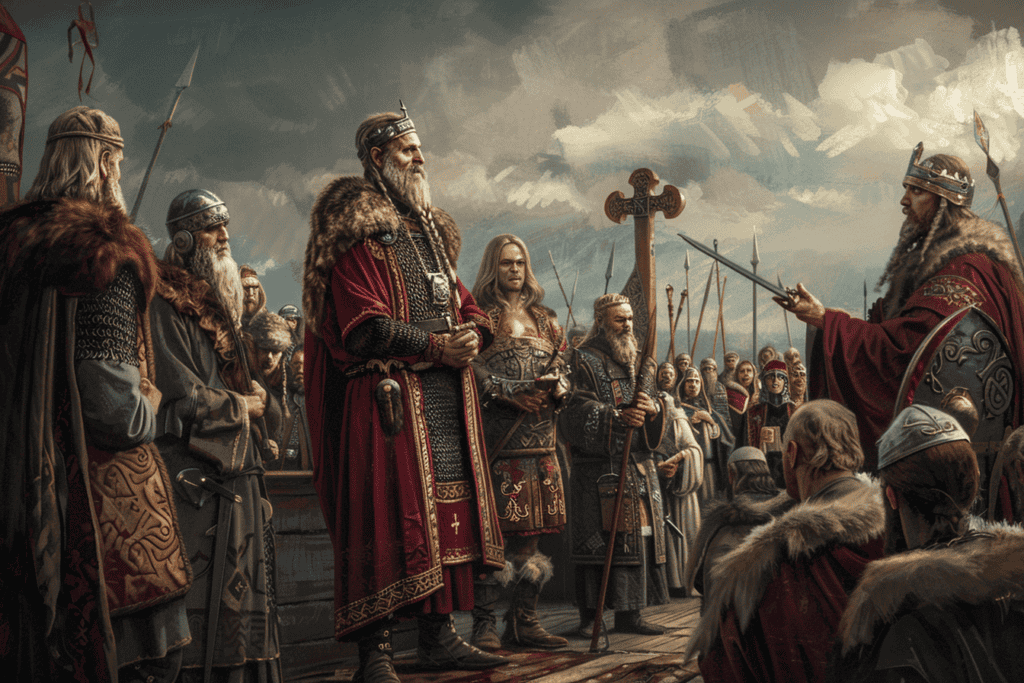
Hakon’s reforms had a lasting impact on Norway, and his legacy is still remembered today. He regulated many things, including public law, which had a salutary effect in their time.
Hakon was a brilliant and successful king who drove back the Blue-tooth foster-son invasions every time they came. He also kept Sundays and the Friday fasts, and some token of the greatest Christian festivals.
Early Life and Ascension to the Throne
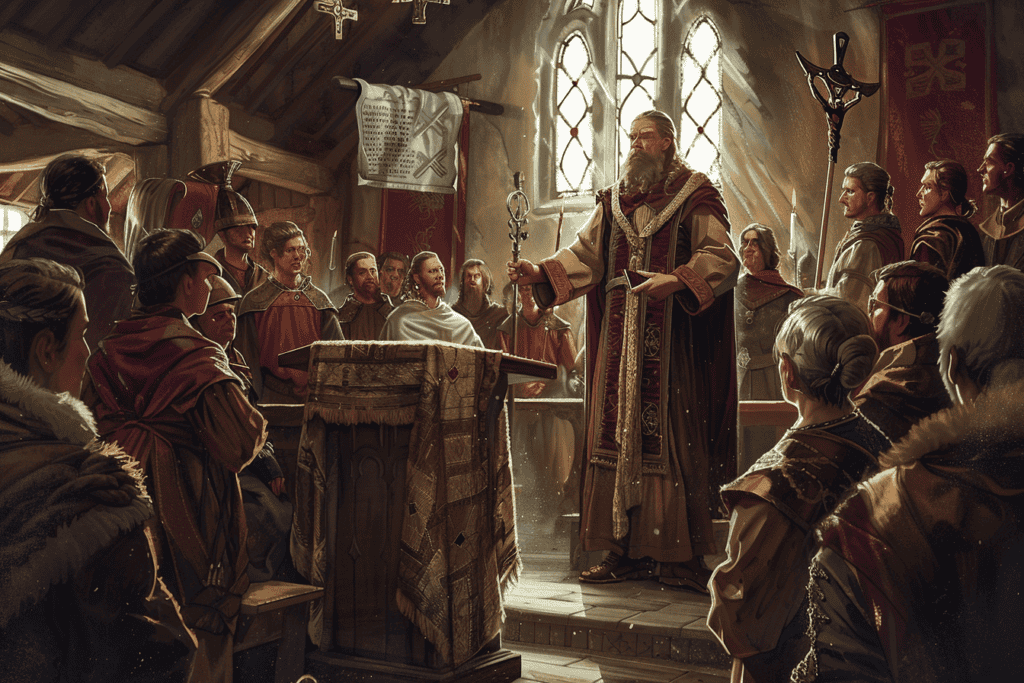
Hakon, the youngest son of the self-proclaimed King of Norway, Harald Fairhair, was born in 920 CE. At a young age, he was sent to the court of King Athelstan of England, where he was raised and educated.
It was during his time in England that he was exposed to Christianity and the idea of a well-organized Christian kingdom.
King Athelstan had a profound influence on Hakon’s life and his reign as the King of Norway. He was known as “Athelstan’s foster-son” and his reforms were largely inspired by his mentor’s realm.
Return to Norway and Claim to Kingship
After spending most of his youth in England, Hakon returned to Norway, where he was met with resistance from his half-brothers who were already vying for the throne.
However, with the support of his mother and the people of Norway, Hakon was able to claim the throne and become the first Christian king of Norway.
Hakon’s reign was marked by his efforts to Christianize Norway and create a more organized and centralized kingdom.
He introduced new laws and regulations, built churches and monasteries, and established a system of taxation to fund his reforms.
Despite facing opposition from some of the traditionalists who were resistant to change, Hakon’s reforms were largely successful and had a lasting impact on the country. His legacy as a just and wise ruler who brought Christianity to Norway is still celebrated today.
Hakon’s Introduction of Christianity to Norway
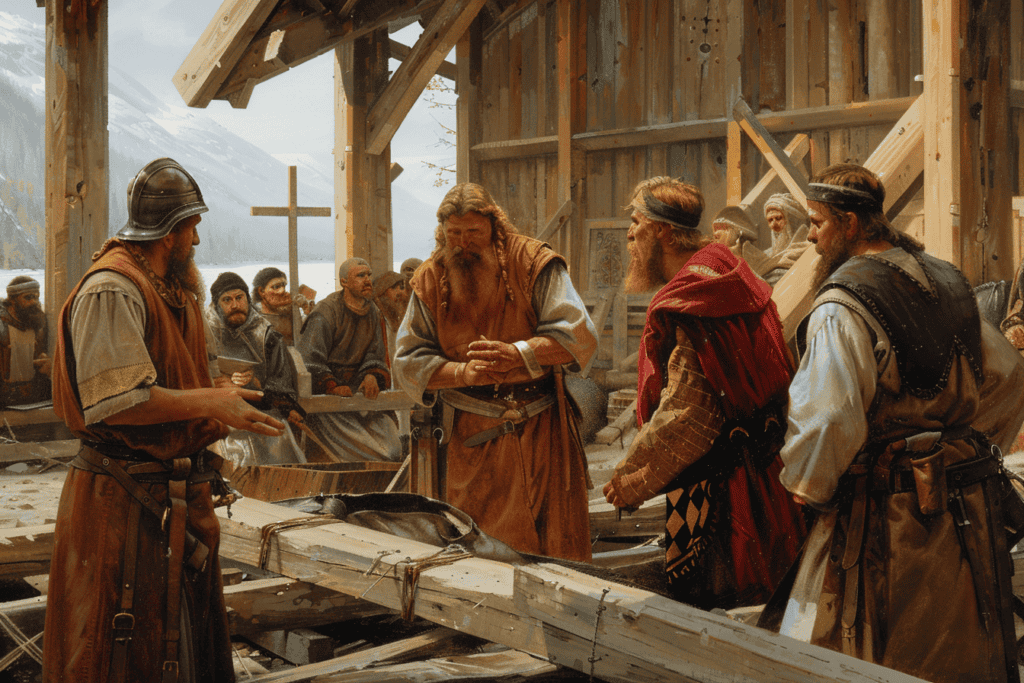
Hakon the Good, Norway’s first Christian king, played a significant role in introducing Christianity to Norway.
He was inspired by his upbringing at the English court, where he learned about Christianity and a well-organized Christian kingdom.
After ascending to the throne in 935 AD, he began his efforts to Christianize Norway.
To achieve this goal, he invited Christian priests to his kingdom and built churches throughout the country.
He also established laws that supported Christian practices, such as the prohibition of pagan rituals and the requirement to observe Christian holidays.
Resistance and Compromise with Paganism
However, Hakon’s Christianization efforts were met with resistance from the pagan population, who saw Christianity as a threat to their traditional way of life.
The pagan leaders, known as chieftains, refused to abandon their pagan beliefs and practices.
In response, Hakon adopted a policy of compromise with paganism.
He allowed the chieftains to continue their traditional practices, such as holding pagan rituals at the Thing (the local assembly), as long as they did not interfere with Christian practices.
He also allowed them to continue their traditional role as local leaders, as long as they pledged their loyalty to him as king.
Military Campaigns and Battles
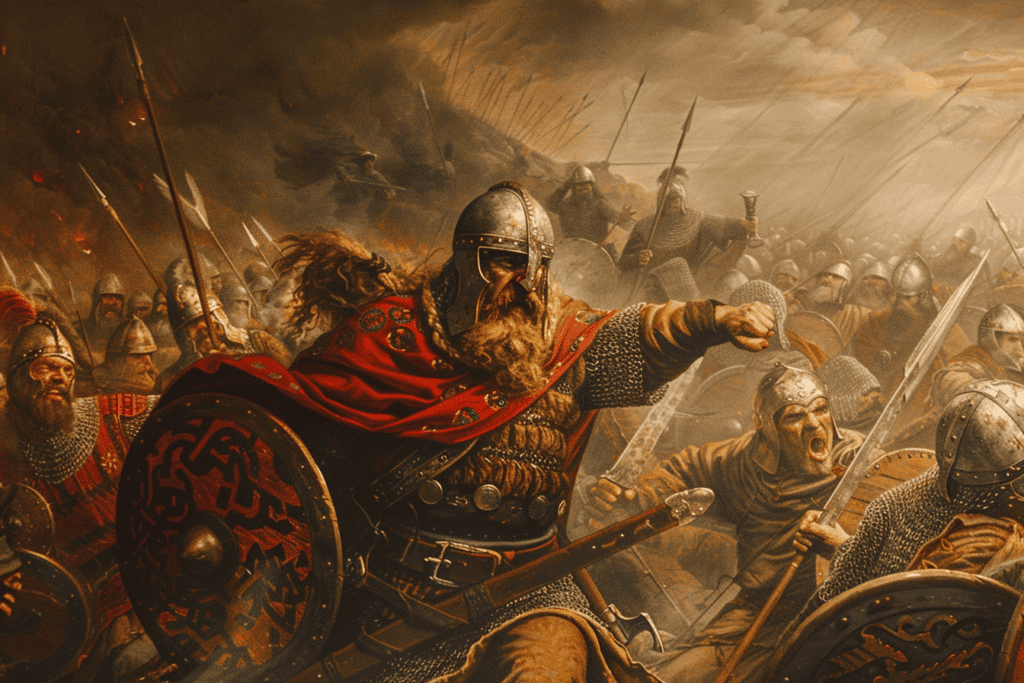
Hakon the Good’s reign was marked by frequent Danish raids on Norway’s coastal regions.
To defend his kingdom, Hakon built up a fleet of ships and organized a system of coastal defenses.
He also formed alliances with local chieftains and warriors, who pledged to support him in times of war.
Despite these efforts, the Danes continued to launch attacks on Norway.
In 955, they invaded the region of Viken and burned down the town of Tunsberg.
Hakon responded by mustering his forces and driving the Danes back to their ships. The two sides clashed again in 961, when Hakon led a successful defense of Oslo against a Danish fleet.
The Battle of Fitjar and Its Aftermath
Hakon’s most famous battle was fought against his own half-brother, Eric Bloodaxe, who had returned to Norway with a fleet of warriors in 961. The two sides met at Fitjar, a small island off the coast of western Norway.
The battle was fierce and bloody, with both sides suffering heavy losses.
In the end, Hakon emerged victorious, and Eric was forced to flee the country. However, Hakon himself was mortally wounded in the fighting and died a few days later.
Legacy and Impact on Norwegian Society
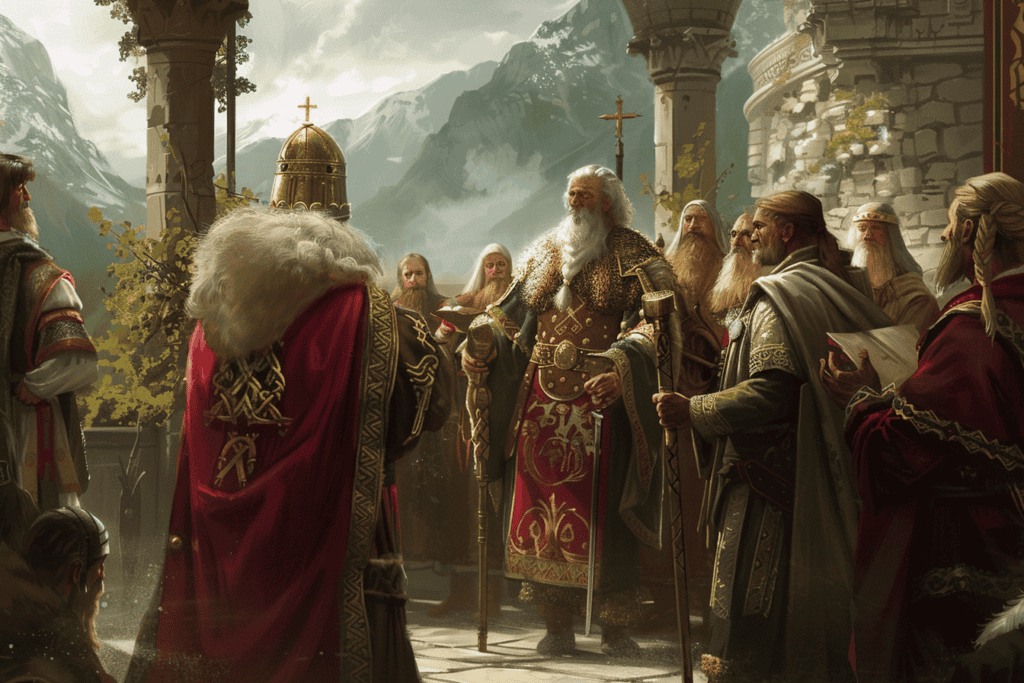
Hakon the Good’s legal reforms and administrative changes had a significant impact on Norwegian society.
He is credited with introducing a more organized and centralized system of governance, which included the establishment of a royal court and the appointment of local officials to oversee the administration of justice.
One of his most notable legal reforms was the introduction of a uniform code of law that applied to all of Norway. This helped to standardize legal practices and ensure that justice was applied equally throughout the kingdom.
Hakon also introduced a system of conscription that required all able-bodied men to serve in the military. This helped to strengthen Norway’s military defenses and ensure that the kingdom was better prepared to defend itself against external threats.
Cultural Influence and the Sagas
Hakon the Good’s cultural influence on Norway is also significant. He is the subject of several sagas, which were written in Old Norse and Latin. The sagas helped to establish him as a legendary figure in Norwegian history.
The sagas depict Hakon as a wise and just ruler who was deeply committed to his Christian faith. They also highlight his efforts to promote Christianity throughout Norway and his role in establishing the Church as a powerful institution in Norwegian society.
Hakon’s reforms and cultural influence helped to lay the foundation for a more unified and organized Norway. His legacy as Norway’s first Christian king is still celebrated today, and his impact on Norwegian society can still be felt centuries later.

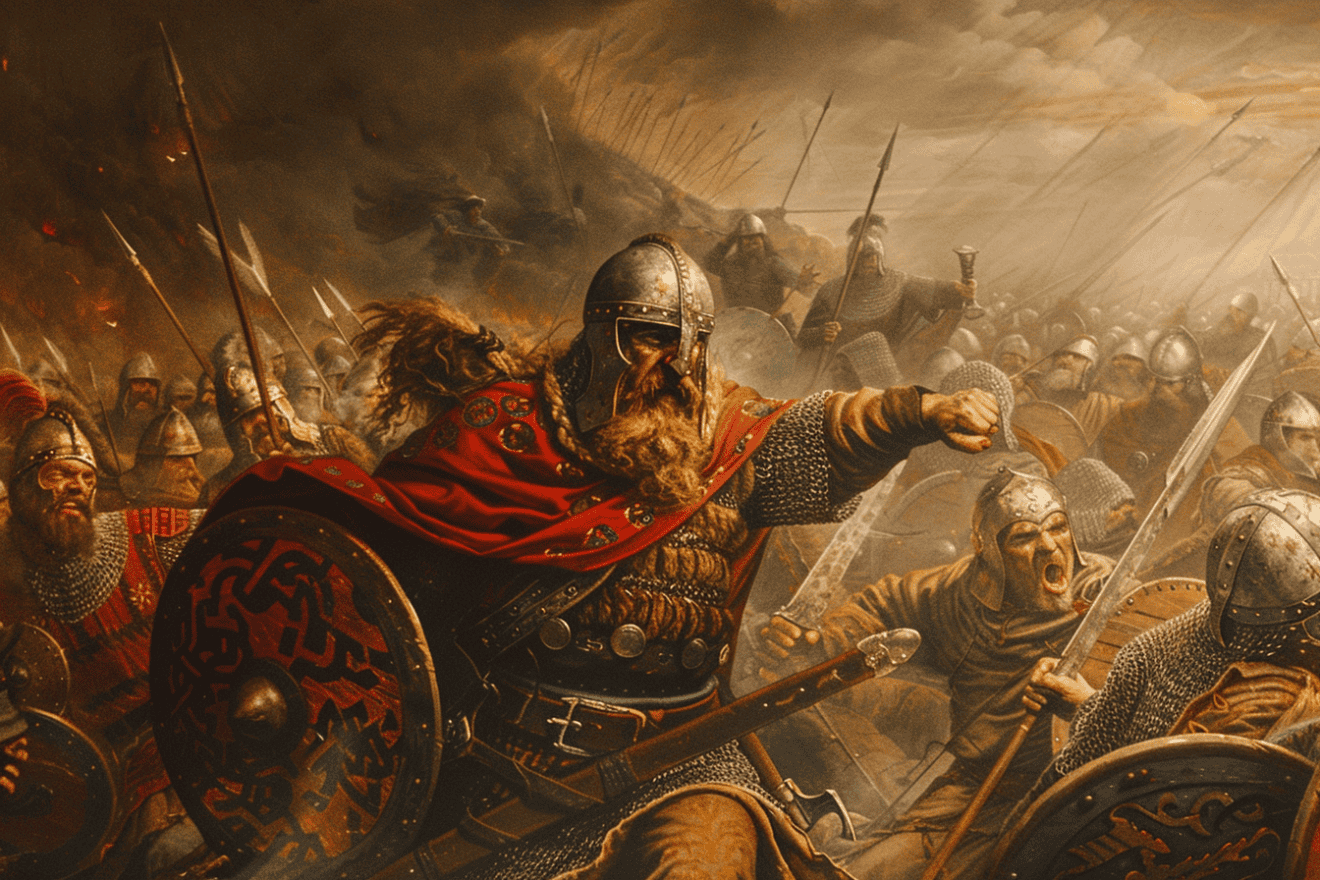








Add Comment